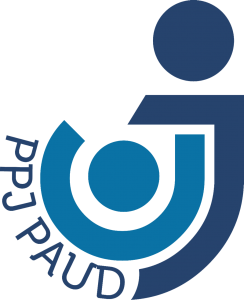Early childhood teachers’ perception of the attitudes and behaviors of a professional teacher
DOI:
https://doi.org/10.26555/jecce.v7i2.9893Keywords:
attitudes, behaviors, professional teachers, teachers’ perceptionsAbstract
Teachers’ perceptions regarding their professional identity affect their teaching efficacy, their professional development, their propensity to stay in the teaching profession, and their ability and willingness to enhance their teaching performance and cope with educational change. This study aims to explore the perceptions of Early Childhood Teachers related to the attitudes and behaviors of a Professional Teacher. Quantitative and qualitative approach were used. Data were collected through open-questionnaires and interviews. The subject in this study consists of 100 Early Childhood teachers in Jember who are now teaching in Aisyiyah Kindergarten. All the 100 teachers filled out the questionnaire, but only some were willing to be interviewed. The data were analyzed using Descriptive Statistics. The results of the study revealed that according to teachers’ perceptions, professional attitudes and behaviors include expertise, social ability, self-integrity and productive behavior. The study also found that most teachers rated themselves significantly low in terms of professionalism. Only those with more experience rated themselves high.
References
Ahmad, I., Said, H., Zeb, A., Sihatullah, & Rehman, K. ur. (2013). Effects of Professional Attitude of Teachers on Their Teaching Performance : Case of Government Secondary School Teachers in Malakand Region, Khyber Pakhtunkhwa, Pakistan. Journal of Educational and Social Research, 3(1), 25–31. https://doi.org/10.5901/jesr.2013.v3n1p25
Carr, D. (2000). Professionalism and Ethics in Teaching. Routledge.
Dutelle, A. W., & Taylor, R. S. (2011). Ethics for The Public Service Professional. Crc Press.
Fahriani, E., Samad, I. A., & Saiful. (2020). Exploring Teachers’ Perception toward Their Professionalism in Teaching Eng-lish. English Education Journal (EEJ), 11(3), 380–396.
Frelin, A. (2013). Exploring Relational Professionalism in Schools. Sense Publishers.
Hartung, P. J., & Subich, L. M. (2010). Developing Self in Work and Career: Concepts, Cases, and Contexts. American Psychological Association.
Ifanti, A. A., & Fotopoulou, V. S. (2011). Teachers’ Perceptions of Professionalism and Professional Development: A Case Study in Greece. World Journal of Education, 1(1), 40–51. https://doi.org/10.5430/wje.v1n1p40
Kanes, C. (2011). Elaborating Professionalism: Studies in Practice and Theory. Springer Science and Business Media.
Kusmaryani, R. E., Siregar, J. R., Widjaja, H., & Jantika, R. (2016). Key Factors in Teacher Professional Development. In: 2nd Psychology and Humanity Asean Conference on Proceedings, 704–708.
Kusmaryani, Rosita Endang, Siregar, J. R., Widjaja, H., & Jatnika, R. (2018). Professionalism on Teacher’s Perception. Psychological Research and Intervention, 1(1), 26–31. https://doi.org/10.21831/pri.v1i1.21195
Masoumpanah, Z., & Zarei, G. R. (2014). EIL Iranian Teachers’ Professional Identity and Perception of Professional Competence. Social and Behavioural Sciences, 98. www.sciencedirect.com
Miles, M. B., Huberman, A. M., & Saldana, J. (2014). Qualitative data analysis: A methods sourcebook (3rd Edition). Sage PublicationsSage Publications.
Sagala, S. (2012). Kemampuan Profesional Guru dan Tenaga Kependidikan [The Ability of Professional Teachers and Education Staff]. Alfabeta.
Savira, S. I., Suhanadji, & Khoirunnisa, R. N. (2018). Understanding How Teacher Perceived Teaching Professionalism. 1st International Conference on Education Innovation (ICEI 2017), 173, 294–297. https://doi.org/10.2991/icei-17.2018.77
Suhardjono. (2006). Pengembangan Profesi Guru dan Karya Tulis Ilmiah. Consultation Meeting in the Framework of Coordination and Development of Personnel Educators and Education Personnel.
Syahrul, M. (2016). The Analysis of Pedagogical Competence of The English Teachers’ of The Second Grade Students at Mts Negeri 1 Jeneponto in Teaching English. UIN Alauddin Makassar.
Tanang, H., & Abu, B. (2014). Teacher Professionalism and Professional Development Practices in South Sulawesi, Indonesia. Journal of Curriculum and Teaching, 3(2), 25–42. https://doi.org/10.5430/jct.v3n2p25
Taniredja, T., & Abduh, M. (2016). Pedagogical, Personality, Social and Professional Competence in Correlation with Teachers’ Performance (Correlational Study of Junior High School Teacher at SMPN 3 Purwokerto). The 2nd International Conference on Science, Technology, and Humanity, 264–272.
Townsend, T., & Bates, R. (2017). Handbook of Teacher Education : Globalization, Standart and Professionalism in Time of Change. Springer.
Yeom, M., & Ginsburg, M. (2007). Professionalism and The Reform of Teachers and Teacher Education in The Republic of Korea & The United States of America. Asia Pacific Education Review, 8(2), 298–310. https://doi.org/10.1007/BF03029264
Downloads
Published
How to Cite
Issue
Section
License
Copyright (c) 2024 Khoiriyah Khoiriyah, Kuni Hikmah Hidayati, Wuri Kartika C

This work is licensed under a Creative Commons Attribution-ShareAlike 4.0 International License.
Authors who publish with this journal agree to the following terms:
- Authors retain copyright and grant the journal right of first publication with the work simultaneously licensed under a Creative Commons Attribution-ShareAlike 4.0 International License that allows others to share the work with an acknowledgement of the works authorship and initial publication in this journal.
- Authors are able to enter into separate, additional contractual arrangements for the non-exclusive distribution of the journals published version of the work (e.g., post it to an institutional repository or publish it in a book), with an acknowledgement of its initial publication in this journal.
- Authors are permitted and encouraged to post their work online (e.g., in institutional repositories or on their website) prior to and during the submission process, as it can lead to productive exchanges, as well as earlier and greater citation of published work (See The Effect of Open Access).














